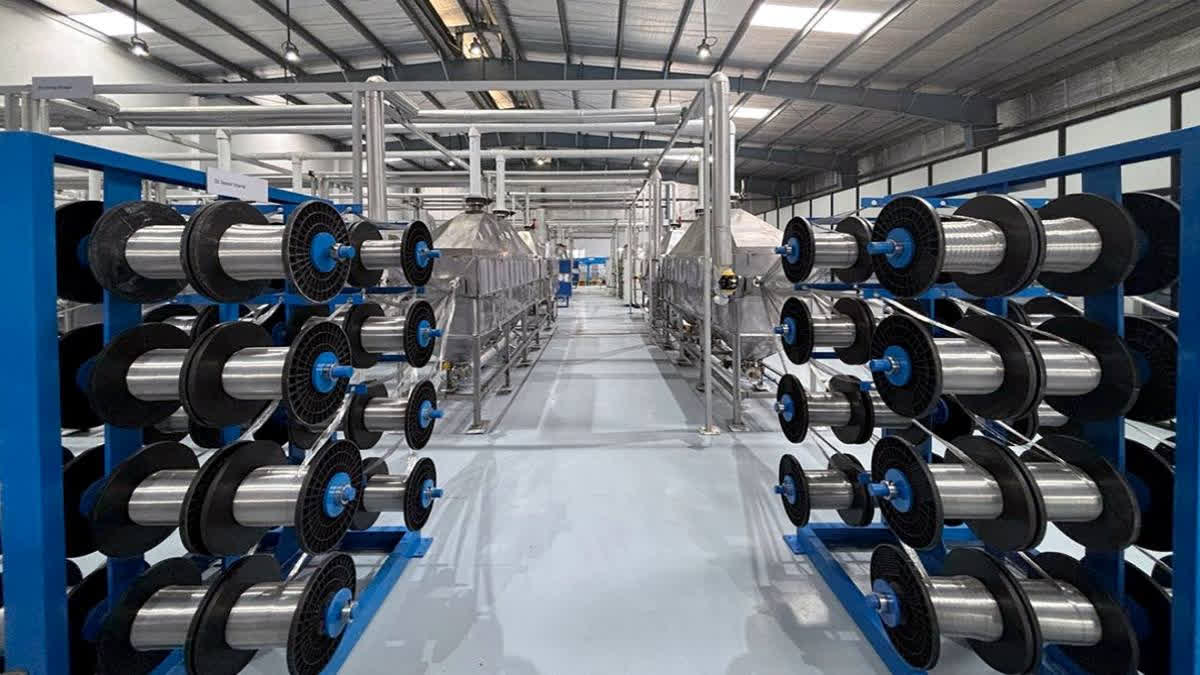New Delhi: India is not able to attract a considerable share of manufacturing companies and foreign capital that have been shifting away from China following the US-China trade tensions that erupted in 2017-18 during the then US President Donald Trump's tenure, whereas other Asian countries, particularly Vietnam, seems to have benefitted the most from US-China trade tensions, showed a study.
A study conducted by the Oxford Economics, a global economic think tank showed that between 2017 and 2023, India's total share in US imports rose by just 0.6 per cent to account for a total of 2.7 per cent of the US' global imports. During the same time, China’s share (excluding Hong Kong) in the US imports dropped by a massive eight per cent. As a result, China’s share in the US’s global imports has come down below 14 per cent from over 22 per cent.
Western companies started shifting their supply chains away from China due to the trade tensions between the world’s two largest economies, the USA and China respectively. The situation was further aggravated due to geopolitical rivalry between the two powers in the South China Sea where China has been becoming increasingly assertive vis-à-vis its neighbours such Philippines, and Vietnam among others.
India has been trying to boost its own manufacturing by attracting foreign capital and those foreign companies that have been looking away from China to shift their supply chains but the data suggests that India is not able to attract a greater share of the global supply chain shift away from China.
India, Vietnam and Bangladesh were considered front-runners for western companies moving away from China but the latest data suggests that Vietnam is the biggest beneficiary of the US-China trade disputes.
For example, during this period, Vietnam’s share in overall US imports increased by 1.7 per cent to total 3.7 per cent, which is one per cent more than that of India’s share in the overall US imports.
Similarly, Taiwan and South Korea also increased their share in overall US imports during this period. While Taiwan’s share in the overall US imports rose by one per cent, South Korea’s share in the overall US imports also rose by 0.7 per cent, showed the Oxford Economics’ study.
Alexandra Hermann, an economist at Oxford Economics, says the US-China trade war so far has improved India's export prospects only to a limited extent, dashing hopes that an escalation of the conflict could boost the lagging manufacturing sector of the country.
"India's export strengths largely lie in sectors of the 'old economy', where growth potential is limited and competition is fierce,” she wrote in the report.
It shows that India's efforts to bolster its own manufacturing by taking advantage of US-China trade tensions are not working as expected.
In order to increase the share of manufacturing in the country;s economy, Prime Minister Narendra Modi launched Make in India scheme in his first term which recently completed a decade but despite the government's push, the share of manufacturing in the country’s economy remained stuck at almost the same level where it was ten years ago, at around 16-17 per cent of the country’s GDP.



